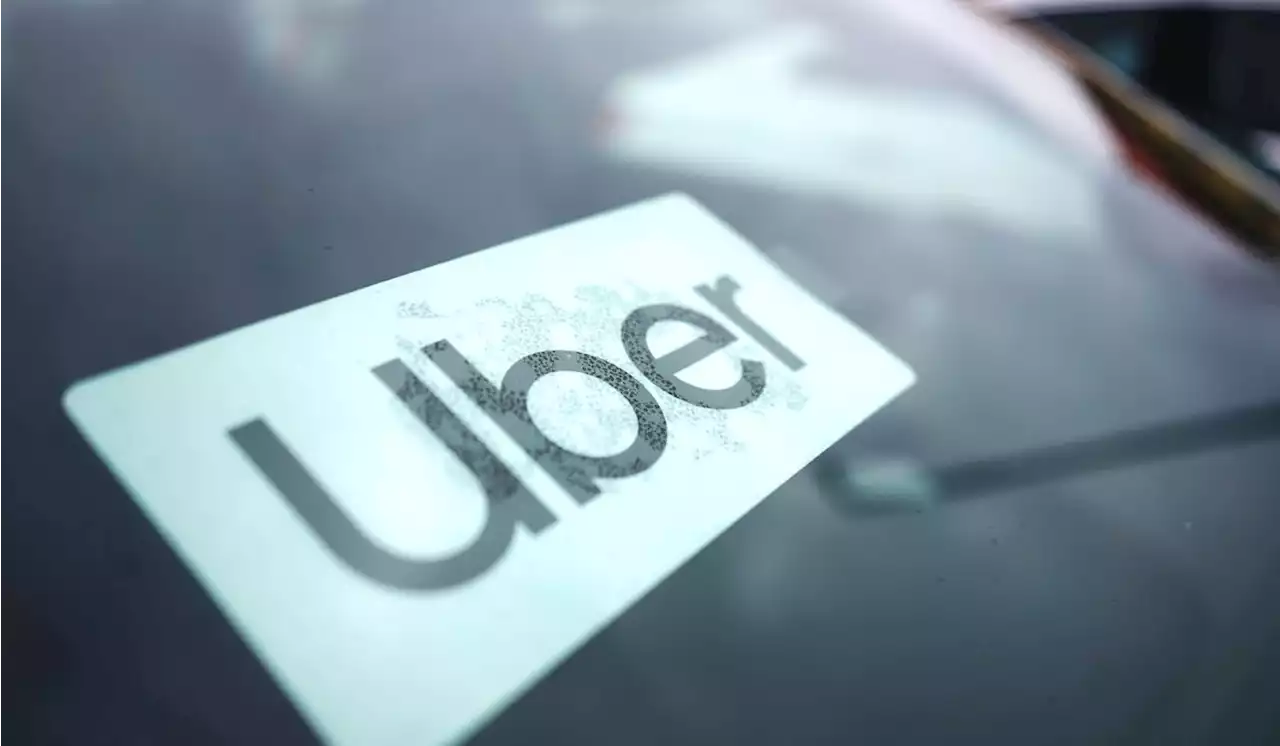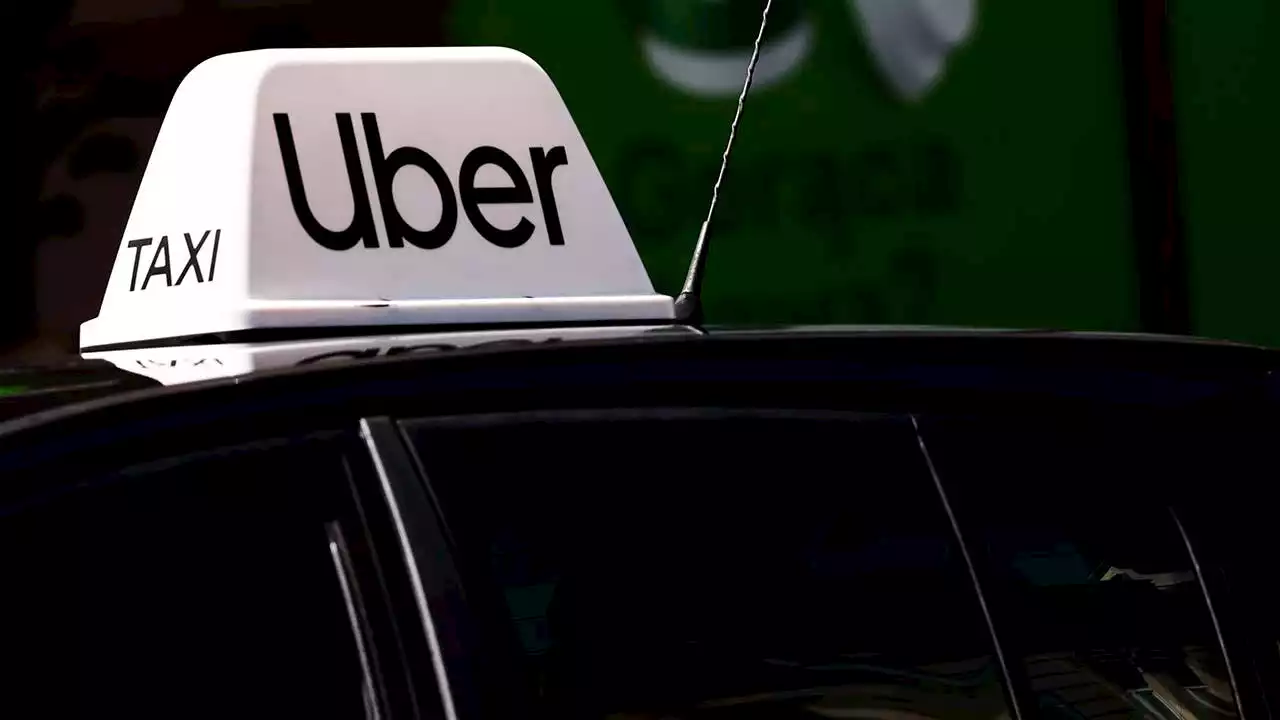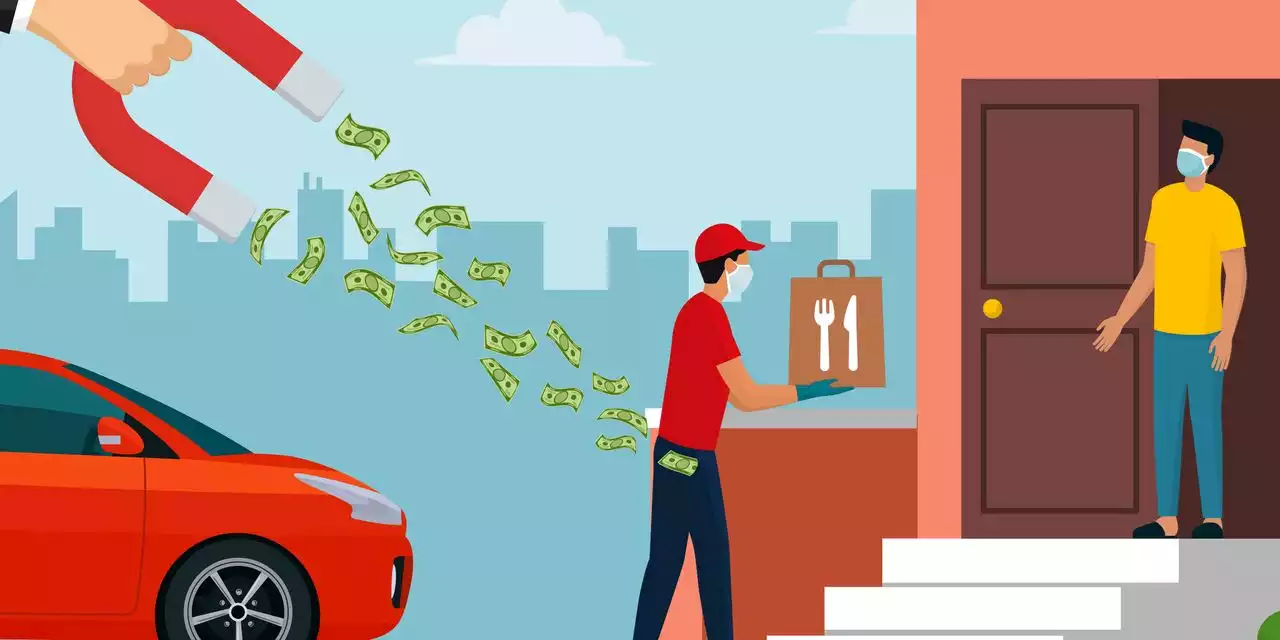MarketWatch exclusive from levisu: The systems that companies like Uber Eats and DoorDash put in place don’t necessarily keep workers’ earnings safe from bad actors, reflecting the fragility of their positions.
Jimmy Quach had been working part time as an Uber Eats delivery driver in Albuquerque, N.M., for two months when he was scammed out of his earnings.
But after MarketWatch contacted Uber in June to ask about the incident, Quach received a message from a different representative, who said she was from Uber’s Priority Support. Quach and some other app-based delivery workers for companies like Uber Technologies Inc. UBER, -3.43%, DoorDash Inc. DASH, -4.26%, Instacart and Just Eat Takeaway’s JET, -10.28% Grubhub have something in common: They have found that the systems the companies put in place don’t necessarily keep their earnings safe from bad actors. And while some have been able to get their hard-earned cash back, many of them have lost money, reflecting the fragility of their positions as part of the gig economy.
Academics who study gig work said it is almost impossible to independently quantify the scope of the problem because the companies tend to hold their data close, and are loosely regulated, if at all. But his earnings never started flowing again into his bank account. Money got so tight that Sharma said he, his wife and their three kids had to move in with his in-laws because they were evicted from their apartment. At one point, there were as many as 15 people living in that house, he said.“I was using all the stimulus money,” she said, adding that eventually she was “transferring money from our savings accounts for my daughters just to survive.
A DoorDash spokesman told MarketWatch that the person who opened the PayFare account had to have access to Sharma’s phone and email, because two-factor authentication had been activated. The head of customer support at PayFare said she investigated the matter and determined that whomever had the debit card spent nearly all of the thousands of dollars Sharma was missing. There was only $1.08 remaining on the card.
One of the most common scams involves workers getting a phone call from a person claiming to be an Uber, DoorDash, Instacart or Grubhub support representative while they’re on a delivery or shopping trip. Somebody places an order through the app — usually for a small or single item — as a way to connect to the delivery worker, then proceeds to try to extract information from them.
A few complaints received by the Federal Trade Commission in the past three years, which the agency noted are unconfirmed, describe similar instances of delivery workers finding a number to call when they arrived at certain restaurants to pick up customers’ orders. Another complainant, who claimed to be an Uber Eats driver in Dallas, told of being called by a person impersonating Uber support and fooled into sharing personal information, including a Social Security number. The scammer “was able to get into my Uber Account and change my last name from [redacted] to [redacted] so that I won’t be able to cash out any of my potential earnings since it doesn’t match my banking details,” the driver said in the complaint filed in August 2021.
“I’m the queen of watching for scams, and I don’t know how I fell for this,” Menz said. “They catch you in the process when you’re just trying to get things done quickly.” He said the scammer “was well-spoken” and sounded “highly irritated… It sounded like I was in trouble.” Dante followed a link the scammer provided to what looked like an official DoorDash website, he said, which allowed the scammer to steal his login credentials.
‘The algorithm is their manager’ Gig-work scholars said key aspects of the gig economy contribute to the persistence of the problem of workers losing their earnings.
United States Latest News, United States Headlines
Similar News:You can also read news stories similar to this one that we have collected from other news sources.
 Uber admits to hiding 2016 data breach exposing riders and drivers, avoids prosecutionUber has admitted to hiding a major 2016 data breach that exposed its drivers and riders in a new settlement the ride-sharing company made to avoid prosecution, according to the Justice Department.
Uber admits to hiding 2016 data breach exposing riders and drivers, avoids prosecutionUber has admitted to hiding a major 2016 data breach that exposed its drivers and riders in a new settlement the ride-sharing company made to avoid prosecution, according to the Justice Department.
Read more »
 NYC Uber rides most expensive in the U.S., study findsAn Uber ride in New York City will set you back more than any other city in the U.S. according to a new study, but fares in Nashville are not much cheaper.
NYC Uber rides most expensive in the U.S., study findsAn Uber ride in New York City will set you back more than any other city in the U.S. according to a new study, but fares in Nashville are not much cheaper.
Read more »
 Uber Used Political Influence to Go Global, Leaked Documents SayOld news or not, this will affect urban mobility for years to come.
Uber Used Political Influence to Go Global, Leaked Documents SayOld news or not, this will affect urban mobility for years to come.
Read more »
 Terminals at third-busiest California port resume regular hoursPort officials ended a week-long truck driver protest over new legislation in California colloquially called the 'gig-worker' law, and formally known as AB5.
Terminals at third-busiest California port resume regular hoursPort officials ended a week-long truck driver protest over new legislation in California colloquially called the 'gig-worker' law, and formally known as AB5.
Read more »
 One barrier to electric cars: Slow fleet turnoverNew research shows why strong sales growth is not enough to reach climate targets.
One barrier to electric cars: Slow fleet turnoverNew research shows why strong sales growth is not enough to reach climate targets.
Read more »
 I Couldn't Stop Thinking About The Spaghetti From 'The Bear,' So I Made It At Home (And It's Incredible)I don’t know about you, but I’m starving...
I Couldn't Stop Thinking About The Spaghetti From 'The Bear,' So I Made It At Home (And It's Incredible)I don’t know about you, but I’m starving...
Read more »
